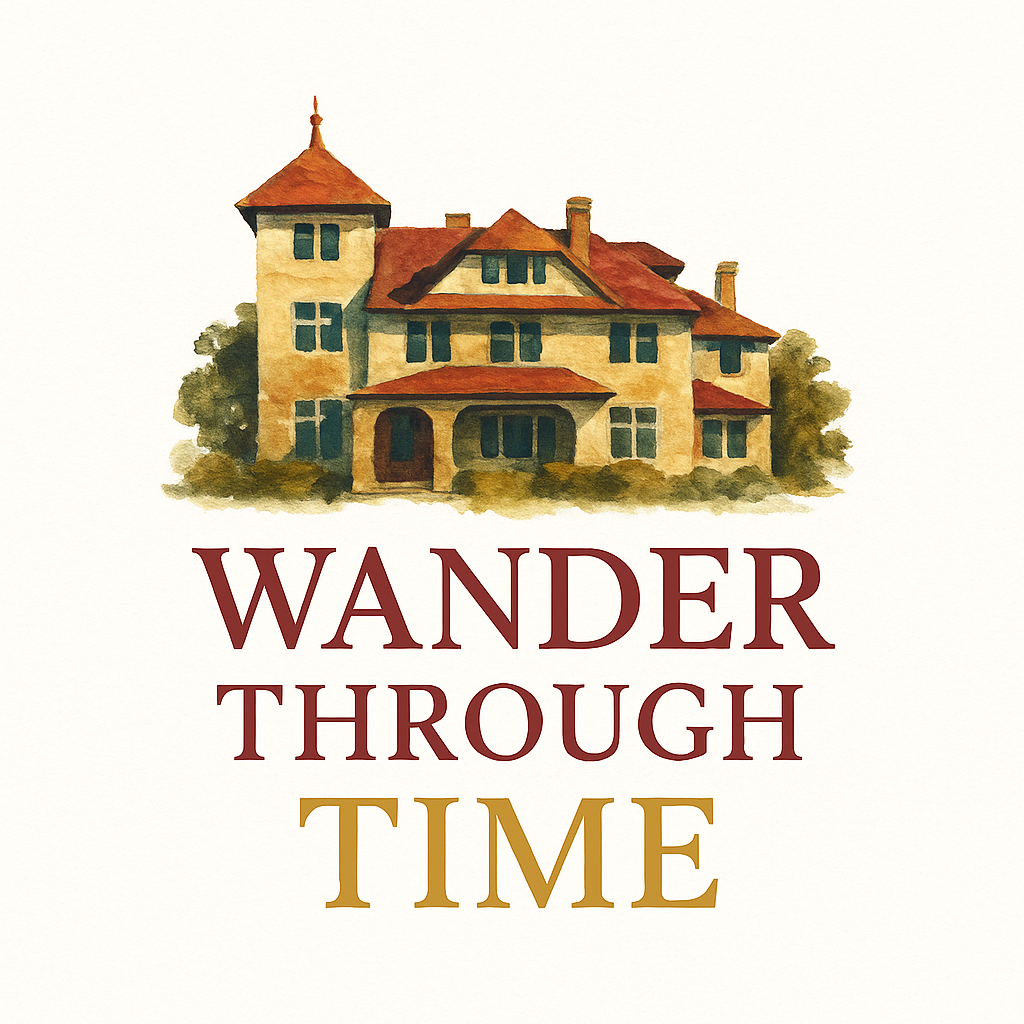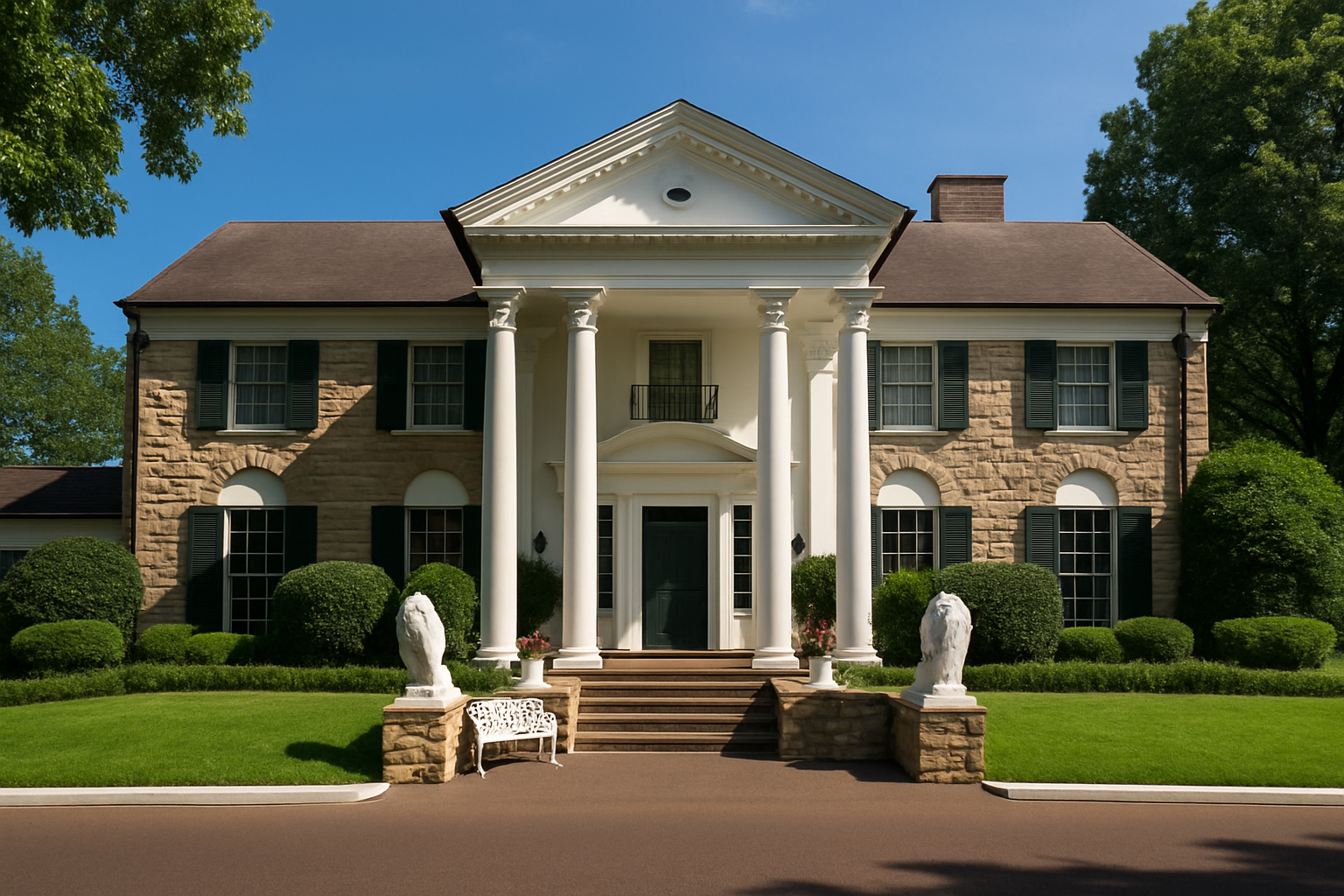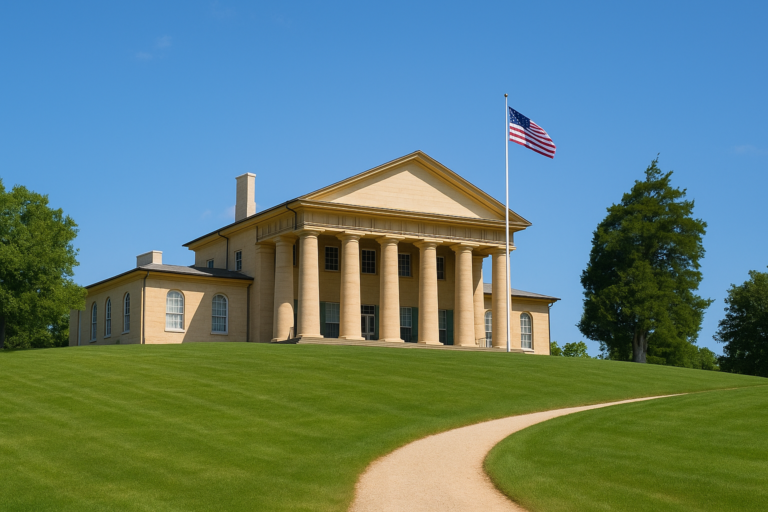Graceland: A Home, A Legend, And A Lasting Legacy
Graceland isn’t just a tourist attraction. It’s a deeply personal reflection of the man who redefined American music—and a cultural time capsule that continues to echo the energy and contradictions of Elvis Presley’s life.
Although Graceland doesn’t technically meet the age requirement to be considered a “historic house” in the traditional sense, it’s already one of the most visited and emotionally resonant homes in America. From the moment you approach the white-columned mansion just south of Memphis, you’re entering a story that’s larger than life—yet intimately human.
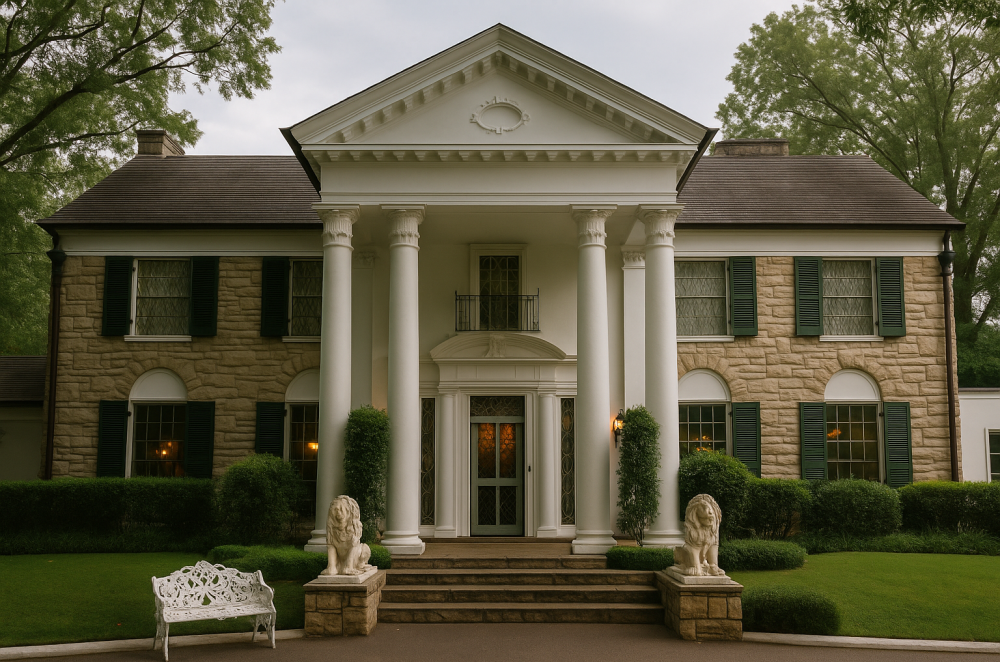 Graceland’s neoclassical design, with its white columns and welcoming front lawn, reflects Elvis’s Southern roots and taste for tradition.
Graceland’s neoclassical design, with its white columns and welcoming front lawn, reflects Elvis’s Southern roots and taste for tradition.
🏡 A Mansion Made Personal
When Elvis purchased Graceland in 1957, he wasn’t looking for a palace. He wanted privacy, comfort, and a home his family could grow into. What followed was a transformation—room by room, decade by decade—into a house that defied convention but perfectly reflected its owner.
There’s nothing understated about the Jungle Room, with its green shag carpet and Polynesian décor. Nor about the TV Room, where three sets ran simultaneously so Elvis could keep up with all three major networks. But these eccentric spaces were lived-in, not staged. And they offer insight into a man who found peace in the strange and familiar alike.
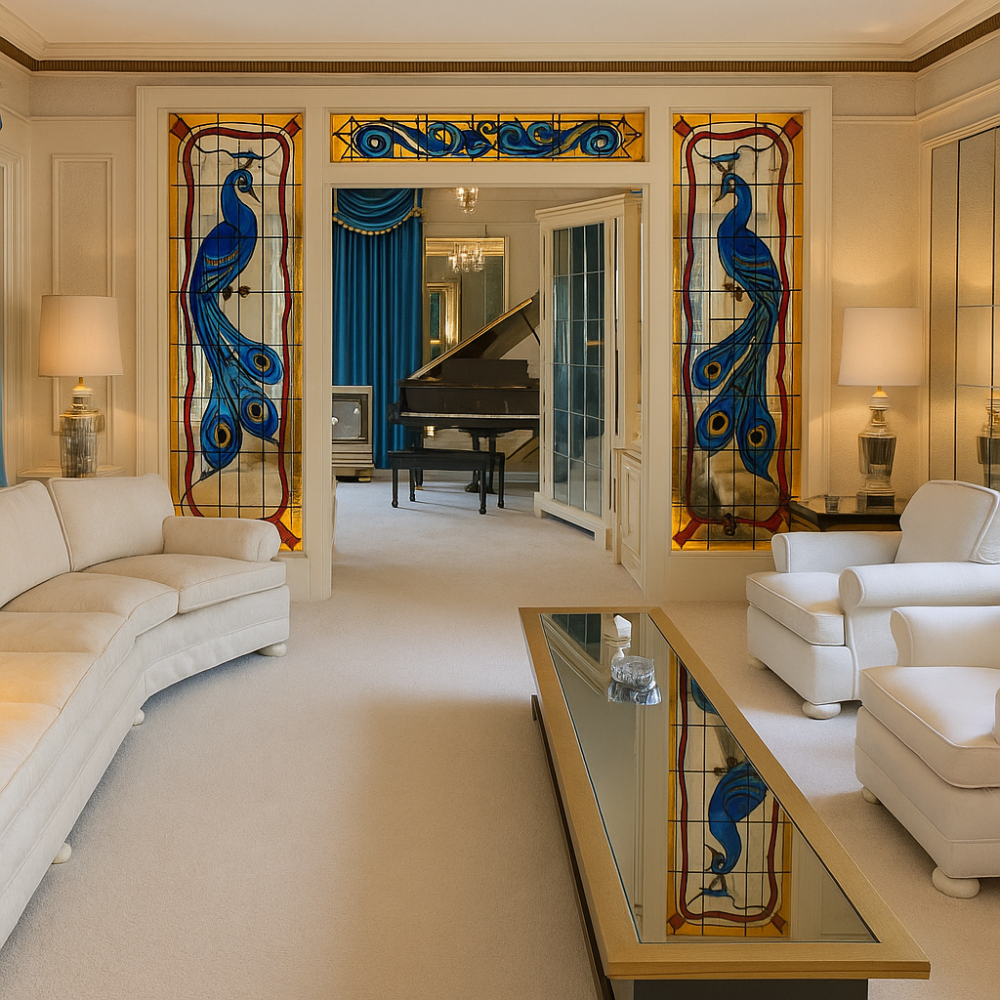 The peacock stained glass and mirrored decor show off Elvis’s flair for drama and eye for glamour—especially in the heart of the home.
The peacock stained glass and mirrored decor show off Elvis’s flair for drama and eye for glamour—especially in the heart of the home.
📀 The Life Behind the Fame
The Graceland estate includes far more than a mansion. Nearby buildings tell the rest of Elvis’s story:
- His rise to stardom is traced through walls of gold and platinum records.
- His generosity is reflected in gifts, letters, and charitable records on display.
- His love for family shows in home videos and candid snapshots that feel heartbreakingly ordinary.
These personal details are what make Graceland more than a monument. It’s a home preserved with care and emotion—a place where fans can connect not just with the legend, but the man.
🌹 The Garden of Reflection
Behind the mansion, past the kitchen wing and the racquetball court, lies the Meditation Garden. Created by Elvis as a place of serenity, it now serves as the Presley family’s final resting place. The garden is lush, peaceful, and surprisingly understated. Yet standing there, among the flowers and fountains, there’s a quiet gravity that speaks louder than any fanfare.
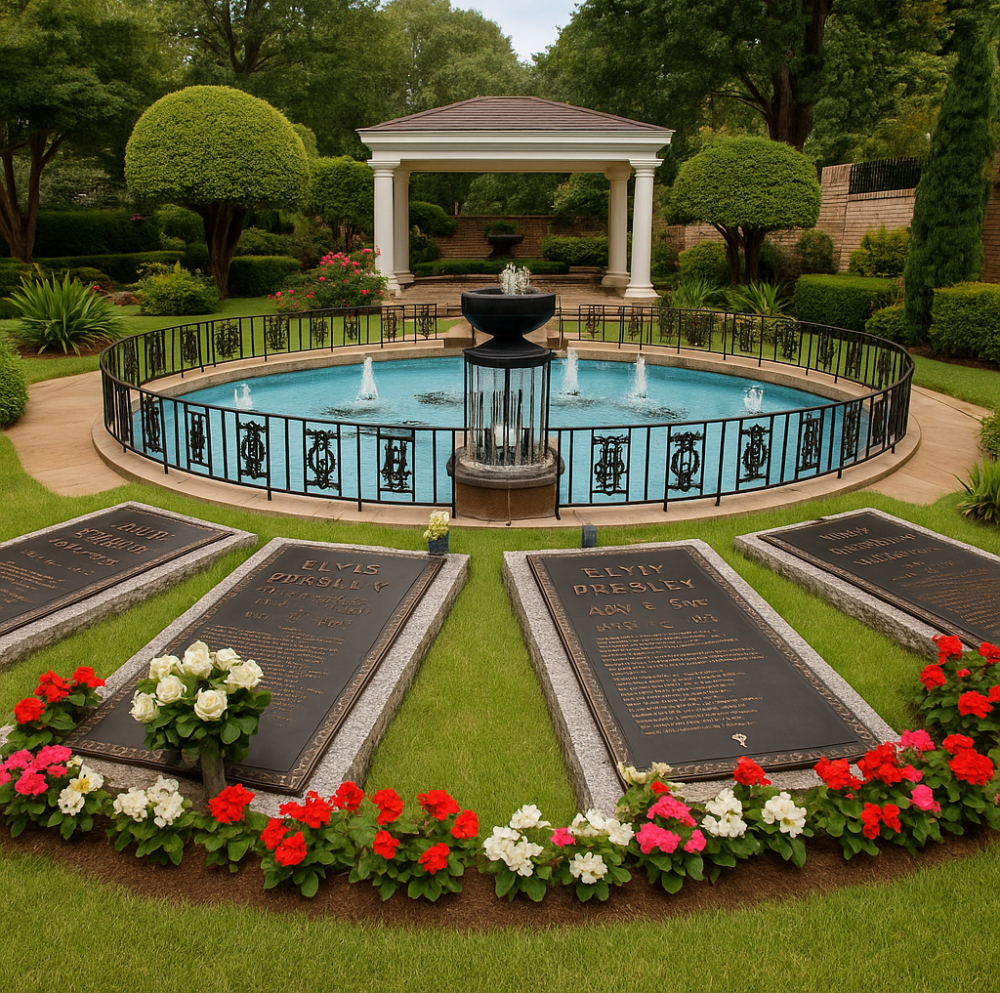 The Meditation Garden, created by Elvis as a place of quiet reflection, now honors his legacy with a tranquil setting that invites visitors to pause and remember.
The Meditation Garden, created by Elvis as a place of quiet reflection, now honors his legacy with a tranquil setting that invites visitors to pause and remember.
🪞 Layers of Legacy
Graceland is layered in ways that few historic homes are. It’s a blend of 1950s Americana, 1970s opulence, and timeless reverence. Visitors often expect glitter and rhinestones—and yes, there’s some of that. But more often, they leave with a sense of closeness to someone who lived hard, loved deeply, and never stopped evolving.
🧱 What the Walls Don’t Say (But Show)
Look closely and you’ll see signs of a private life that Elvis guarded carefully.
- A small Bible near his bed.
- Handwritten notes taped to mirrors.
- Family portraits hung without regard to symmetry or decor.
These aren’t part of any guided tour—they’re just there, woven into the rooms like whispers of the past.
🔚 Why Graceland Endures
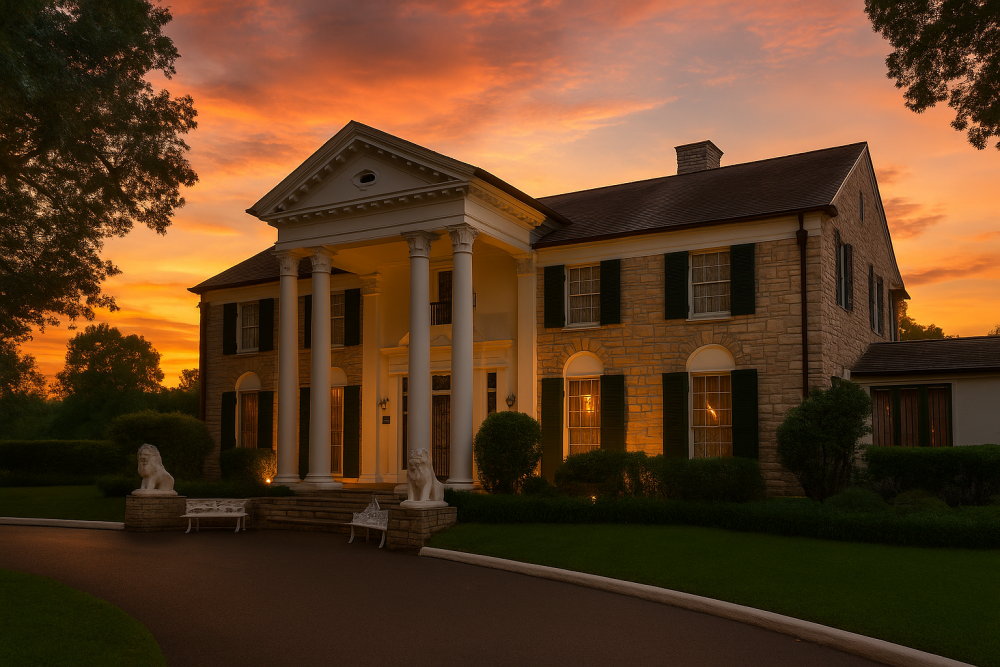 As the sun sets over Graceland, the mansion’s iconic facade radiates warmth—reminding visitors that this was more than a home; it was Elvis’s sanctuary.
As the sun sets over Graceland, the mansion’s iconic facade radiates warmth—reminding visitors that this was more than a home; it was Elvis’s sanctuary.
There are bigger houses. Flashier ones. But few are as beloved. Graceland endures not because of its luxury, but because of its sincerity. In these rooms, Elvis Presley wasn’t a rock star—he was a son, a father, a restless creator. And that’s the story the mansion tells best.
🔗 Want More?
Deep Dive: Graceland’s Secrets & Stories
Explore the untold moments, quiet details, and fascinating legends that make Graceland a place of lasting mystery and meaning.
